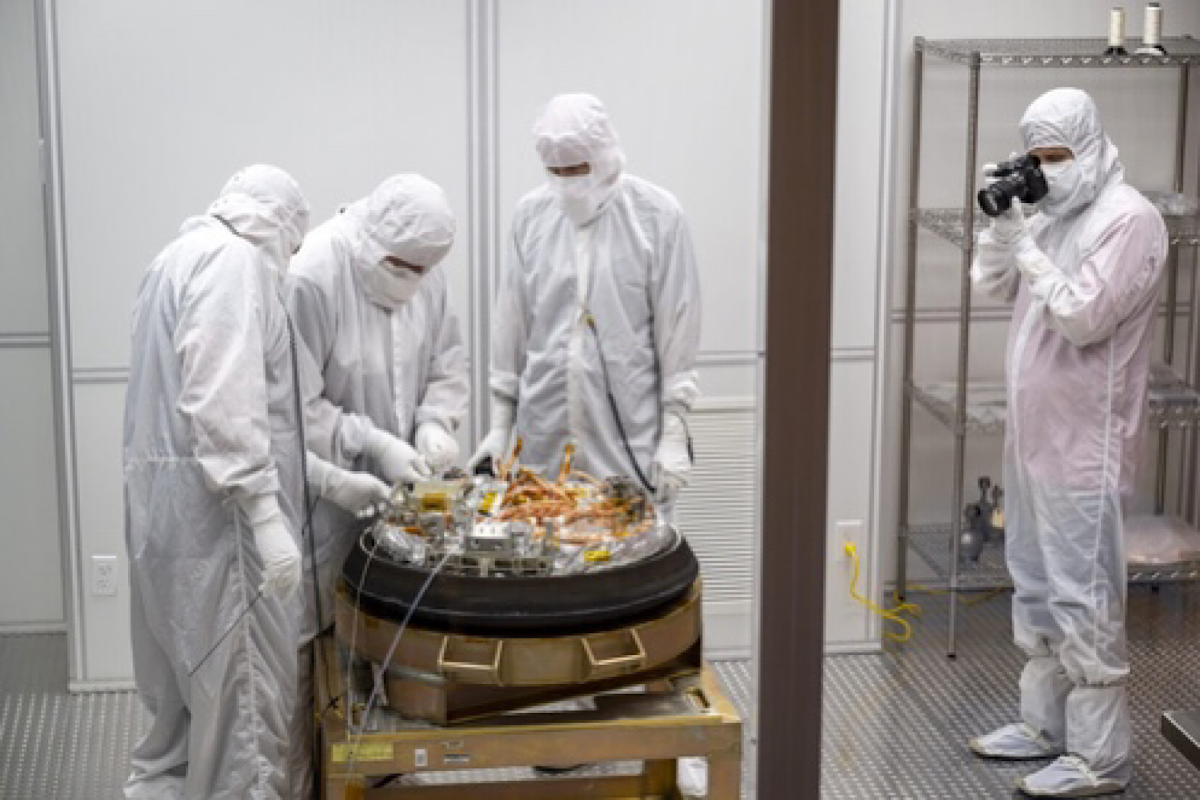3 injured after chemical plant fire in Houston
Three contractors were injured with varying degree burns after a chemical plant set blazed near Houston, US state of Texas, authorities said.

NASA’s asteroid sample secure, to be transported to Texas on Monday
After the successful retrieval of samples from asteroid Bennu, NASA now aims to transport the pristine 250 grams of rock and dust to its facility in Texas, from where it will be distributed to global scientists, on Monday.
NASA’s OSIRIS-REx (short for Origins, Spectral Interpretation, Resource Identification and Security – Regolith Explorer) on Sunday delivered on Earth a capsule of rocks and dust collected from asteroid Bennu in 2020.
It landed at 10:55 a.m. EDT (8.25 p.m. IST) on Sunday, in a targeted area of the Department of Defense’s Utah Test and Training Range near Salt Lake City.
Advertisement
“Congratulations to the OSIRIS-REx team on a picture-perfect mission — the first American asteroid sample return in history — which will deepen our understanding of the origin of our solar system and its formation. Not to mention, Bennu is a potentially hazardous asteroid, and what we learn from the sample will help us better understand the types of asteroids that could come our way,” said NASA Administrator Bill Nelson, in a statement.
Now the OSIRIS-REx team will transport the Bennu sample in an unopened canister by aircraft to NASA’s Johnson Space Center in Houston, Texas on Monday.
Curation scientists there will disassemble the canister, extract and weigh the sample, create an inventory of the rocks and dust, and, over time, distribute pieces of Bennu to scientists worldwide, NASA said.
After travelling billions of miles to Bennu and back, the OSIRIS-REx spacecraft released its sample capsule toward Earth’s atmosphere at 6:42 a.m. EDT (4:42 a.m. MDT). The spacecraft was 102,000 kilometres from Earth’s surface at the time — about one-third the distance from Earth to the Moon.
Travelling at 44,500 kph, the capsule pierced the atmosphere at 10:42 a.m. EDT (8:42 a.m. MDT), off the coast of California at an altitude of about 133 kilometres.
Within 10 minutes, it landed on the military range. Along the way, two parachutes successfully deployed to stabilise and slow the capsule down to a gentle 11 mph (18 kph) at touchdown.
Within an hour and a half of touchdown, the capsule was transported by helicopter to a temporary clean room set up in a hangar on the training range, where it now is connected to a continuous flow of nitrogen — one of the OSIRIS-REx team’s most critical tasks.
Nitrogen is a gas that doesn’t interact with most other chemicals, and a continuous flow of it into the sample container inside the capsule will keep out earthly contaminants to leave the sample pure for scientific analyses.
The returned samples collected from Bennu will help scientists worldwide make discoveries to better understand planet formation and the origin of organics and water that led to life on Earth, as well as benefit all of humanity by learning more about potentially hazardous asteroids.
Advertisement